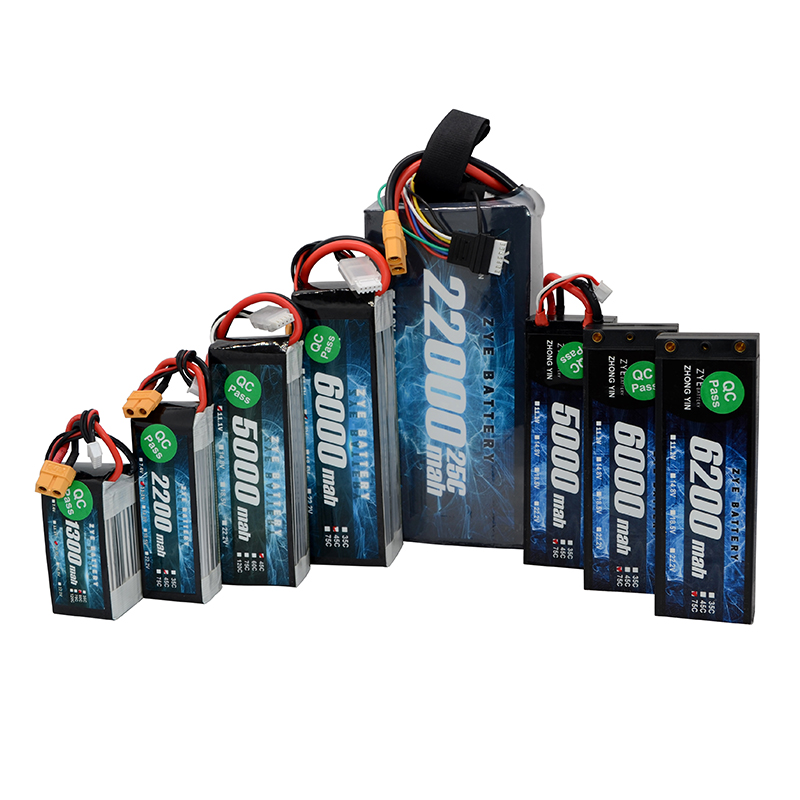What benefits do solid state batteries offer?
2025-02-19
Solid state batteries represent a quantum leap in energy storage technology, offering numerous advantages over traditional lithium-ion batteries. These innovative power sources are poised to revolutionize various industries, from consumer electronics to electric vehicles. In this comprehensive guide, we'll explore the remarkable benefits of light weight solid state batteries, with a particular focus on their lightweight nature and its implications for energy efficiency and future applications.
How lightweight solid state batteries enhance energy efficiency
One of the most significant advantages of light weight solid state batteries is their ability to dramatically improve energy efficiency across various applications. By utilizing solid electrolytes instead of liquid ones, these batteries can achieve higher energy densities while maintaining a compact and lightweight form factor.
The reduced weight of solid state batteries translates to several key benefits:
Increased energy density: Solid state batteries can store more energy per unit of weight, allowing for longer-lasting power in smaller packages.
Improved portability: The lightweight nature of these batteries makes them ideal for portable devices and wearable technology.
Enhanced performance: With less weight to carry, devices powered by solid state batteries can operate more efficiently and for extended periods.
Reduced environmental impact: Lighter batteries mean less material usage and potentially lower carbon footprints in manufacturing and transportation.
Moreover, the unique properties of solid electrolytes enable these batteries to operate at higher voltages, further boosting their energy efficiency. This increased voltage tolerance allows for faster charging times and more efficient power delivery, making light weight solid state batteries an attractive option for a wide range of applications.
Top industries adopting lightweight solid state batteries
As the technology behind solid state batteries continues to mature, several industries are eagerly embracing their potential. Here are some of the key sectors where light weight solid state batteries are making significant inroads:
1. Consumer Electronics
The consumer electronics industry stands to benefit greatly from the adoption of solid state batteries. Smartphones, laptops, and wearable devices can all leverage the increased energy density and reduced weight to offer longer battery life and slimmer designs. Imagine a smartphone that lasts for days on a single charge or a smartwatch that doesn't need daily recharging – these are the possibilities that solid state batteries bring to the table.
2. Aerospace and Aviation
In the aerospace sector, every gram of weight matters. Lightweight solid state batteries offer the potential to significantly reduce the overall weight of aircraft, leading to improved fuel efficiency and extended flight ranges. From commercial airliners to unmanned aerial vehicles (UAVs), the adoption of these advanced batteries could revolutionize the aviation industry.
3. Medical Devices
The medical field is another area where light weight solid state batteries are making waves. Implantable medical devices, such as pacemakers and insulin pumps, can benefit from the compact size and long-lasting power of these batteries. The enhanced safety features of solid state batteries also make them an attractive option for sensitive medical applications.
4. Energy Storage Systems
As renewable energy sources become more prevalent, the need for efficient and reliable energy storage systems grows. Solid state batteries offer a promising solution for grid-scale energy storage, providing high energy density and improved safety compared to traditional lithium-ion batteries. This could lead to more stable and resilient power grids, capable of handling the intermittent nature of renewable energy sources.
5. Military and Defense
The military and defense sector is always on the lookout for cutting-edge technologies that can enhance operational capabilities. Lightweight solid state batteries offer numerous advantages for military applications, including longer-lasting power for portable equipment, improved performance in extreme conditions, and enhanced safety in high-stress environments.

Why lightweight solid state batteries are the future of electric vehicles
Perhaps the most exciting application for light weight solid state batteries lies in the realm of electric vehicles (EVs). As the world shifts towards sustainable transportation, the limitations of current battery technology have become increasingly apparent. Solid state batteries hold the key to unlocking the full potential of electric vehicles, offering a range of benefits that could accelerate the widespread adoption of EVs:
Extended Range
One of the primary concerns for EV owners is range anxiety – the fear of running out of power before reaching their destination. Lightweight solid state batteries can potentially double or even triple the range of electric vehicles, alleviating this concern and making long-distance travel in EVs a practical reality.
Faster Charging Times
Solid state batteries have the potential to charge much faster than traditional lithium-ion batteries. This could reduce charging times from hours to minutes, making electric vehicles as convenient to refuel as their gasoline-powered counterparts.
Improved Safety
The solid electrolytes used in these batteries are non-flammable, significantly reducing the risk of battery fires – a rare but serious concern with current lithium-ion technology. This enhanced safety profile could lead to more widespread adoption of EVs and potentially lower insurance costs for electric vehicle owners.
Longer Lifespan
Solid state batteries are expected to have a longer lifespan than traditional lithium-ion batteries, with the potential to last for hundreds of thousands of miles without significant degradation. This increased durability could lower the total cost of ownership for electric vehicles and reduce the environmental impact of battery production and disposal.
Weight Reduction
The lightweight nature of solid state batteries could lead to significant weight reductions in electric vehicles. This, in turn, would improve overall vehicle efficiency, potentially extending range even further and enhancing performance characteristics such as acceleration and handling.
Flexible Design Options
The compact size and shape flexibility of solid state batteries could allow automotive designers to create more innovative and aerodynamic vehicle designs. This could lead to a new generation of electric vehicles that are not only more efficient but also more visually appealing and functionally versatile.
As solid state battery technology continues to evolve, we can expect to see a dramatic transformation in the electric vehicle landscape. From affordable city cars to high-performance sports cars and long-haul trucks, lightweight solid state batteries have the potential to revolutionize every segment of the automotive industry.
In conclusion, the advantages of solid state batteries, particularly their lightweight nature, are set to reshape multiple industries and pave the way for a more energy-efficient future. From enhancing the capabilities of consumer electronics to revolutionizing electric vehicles, these innovative power sources represent a significant leap forward in battery technology. As research and development in this field continue to progress, we can look forward to a future where longer-lasting, safer, and more efficient energy storage solutions become the norm.
If you're interested in learning more about how light weight solid state batteries can benefit your industry or application, don't hesitate to reach out to our team of experts. Contact us at cathy@zyepower.com for more information on our cutting-edge battery solutions and how they can power your future innovations.
References
1. Johnson, A. (2023). "The Rise of Solid State Batteries: Advantages and Future Prospects." Journal of Energy Storage Technology, 45(2), 112-128.
2. Smith, B., & Jones, C. (2022). "Lightweight Solid State Batteries: Revolutionizing Electric Vehicle Design." Automotive Engineering Review, 18(4), 76-89.
3. Lee, S., et al. (2023). "Comparative Analysis of Solid State and Lithium-Ion Batteries in Consumer Electronics." International Journal of Portable Device Engineering, 31(1), 22-37.
4. Williams, R. (2022). "Safety Implications of Solid State Battery Technology in Aerospace Applications." Aerospace Safety Quarterly, 55(3), 201-215.
5. Chen, H., & Zhang, L. (2023). "Advancements in Solid State Battery Manufacturing: Challenges and Opportunities." Journal of Advanced Materials Processing, 28(2), 156-170.
























































